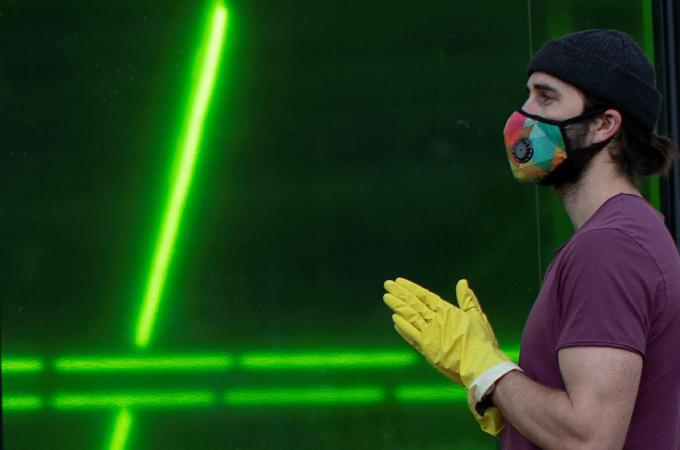Lessons of the pandemic
The coronavirus pandemic shows no sign of abating as this is written, but it's none too soon to start thinking about what we have already learned from this painful experience. I leave it to the physicians, the politicians, and the economists to draw appropriate conclusions in their areas of expertise. Here are some thoughts on the pandemic's lessons for people of faith.
The most important lesson obviously was how much we value certain things and people that we ordinarily take for granted. That includes spouses, family and friends, the freedom to come and go as we please, and, for us Catholics, the Mass and sacraments celebrated in our own familiar churches. The social distancing imposed by COVID-19 served as a reminder that nothing beats being without someone or something to remind us how much he or she or it really does matter to us.
In particular, the pandemic has been a reminder for many of what a precious gift life is. And here distinctions are required.
I agree entirely with religious commentators who've used the occasion of closed churches and cancelled Masses to point out the error of absolutizing mere staying alive, as if simple survival were the highest value there is. That's the error one Catholic writer called "the sentimentalism of saving lives at any cost."
That said, though, I seriously question the good sense of those who moved from the general principle to a highly dubious application by lambasting religious leaders who closed churches and cancelled public Masses as step to slow the spread of the virus. Although the announcements that accompanied these steps may occasionally have sounded more bureaucratic than pastoral, the criticism itself seemed at times to err by missing the point.
What point?
First, that talking down the importance of saving lives implicitly belittled the bravery and dedication of medical personnel who repeatedly placed themselves in danger of contracting the disease by tending those suffering from it. Second, that the criticism carried with it a message to the high-risk elderly that it's selfish of them to prefer living to dying. Many old people have long since come to terms with the fact that sooner than later they will die. But many also would quite reasonably prefer that when death does come, it not be via COVID-19, which by all accounts appears to be an especially ugly way of checking out.
Some who regret being without the sacraments say canon law prohibits withholding them. I share their regret, but nothing in canon law overrides common sense and social responsibility in the face of this crisis. And as canon 27 wisely points out, "custom is the best interpreter of law."
Finally, the pandemic has provided an object lesson in the value of courageous, creative, and, if possible, charismatic leadership in the Church. Some unquestionably provided it, and I hereby express heartfelt thanks to those, starting with Pope Francis, who provided Masses and other religious services on television, Facebook, and other media. On the other hand, I would have welcomed a bit more inventiveness -- parking lot Masses and drive-in confessions come to mind -- in making spiritual resources available.
It would be helpful if, once the crisis has passed, the U.S. Conference of Catholic Bishops or some other agency compiled an experience-based handbook of best practices in meeting pastoral needs in emergencies. In fact, something of the kind might already be useful to pastoral planners in places where the shortage of priests is either already a problem or else will be soon.
- Russell Shaw is the author of more than twenty books. He is a consultor of the Pontifical Council for Social Communications and served as communications director for the U.S. Bishops.



















